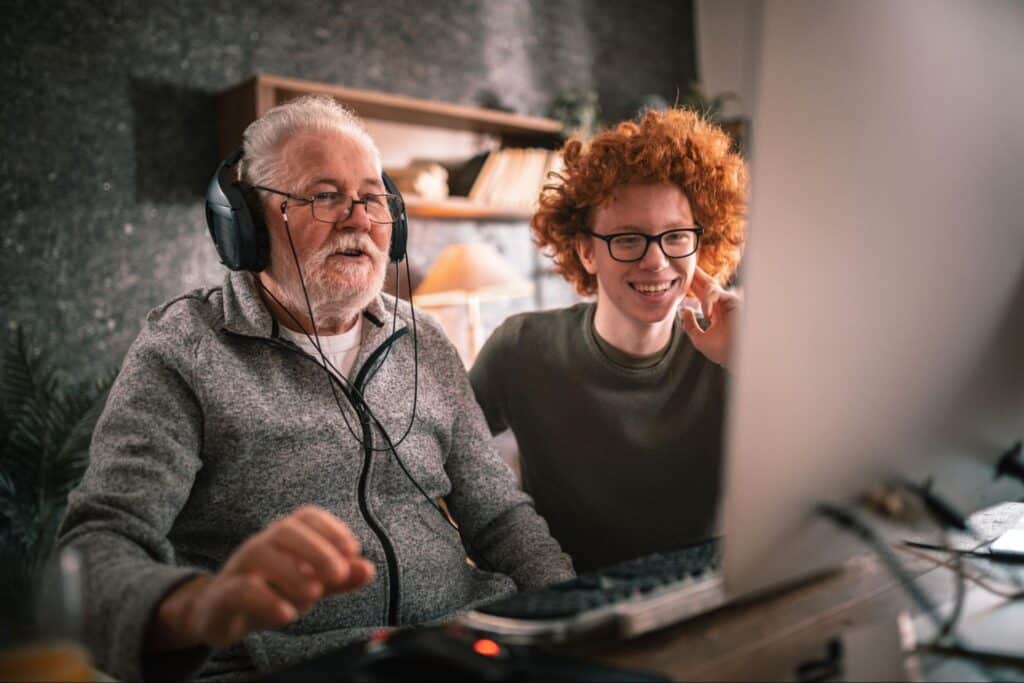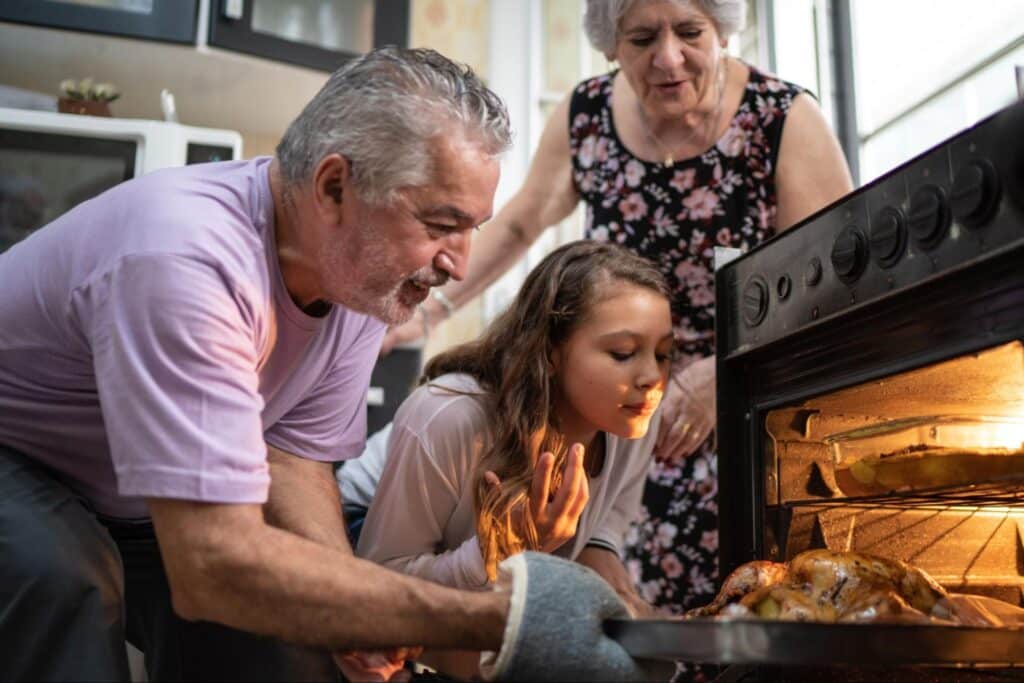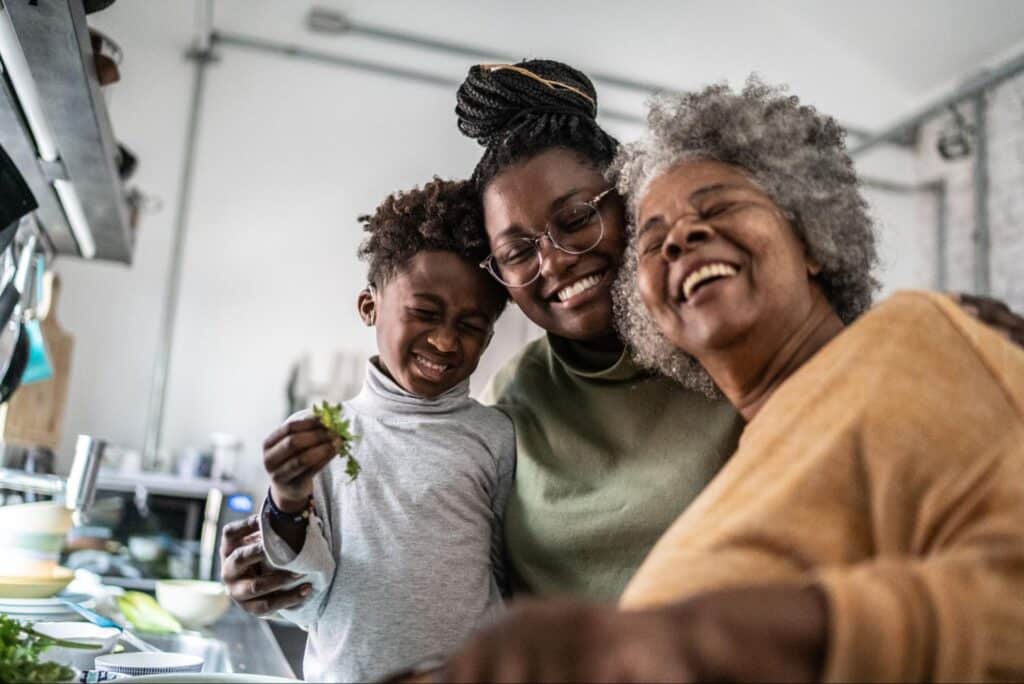
As humans, our need for connection doesn’t diminish with age. In fact, maintaining meaningful relationships and engaging with others becomes even more critical for seniors, contributing to their mental and emotional health. One of the most impactful forms of connection? Building strong intergenerational relationships. Interacting with younger generations offers seniors far more than an occasional conversation—it can boost cognitive function, reduce feelings of isolation and foster an overall sense of purpose and happiness.
Here’s a closer look at how these relationships work wonders for mental health and how seniors (and younger individuals) can benefit from spending time together.
Improving Cognitive Function Through Shared Activities
Age-related cognitive decline is a natural part of aging, but engaging in mentally stimulating activities—especially those involving others—can help preserve cognitive health. Interacting with younger people often involves lively conversations, learning new things and adapting to different ways of thinking. All of these keep the brain active and engaged.
Younger generations, particularly children and teens, tend to bring fresh perspectives and energy. When seniors engage with younger individuals, their brains are challenged to process new information, adapt to unfamiliar ideas and engage in problem-solving. Whether it’s helping a grandchild with their homework, learning how to use the latest tech gadget from a younger relative or playing a strategy-based board game with a teen, these moments of mental stimulation can enhance memory, critical thinking and overall brain health.
Studies also show that intergenerational activities can improve neuroplasticity (the brain’s ability to form new neural connections). This is particularly important for seniors as it helps maintain memory and learning abilities, reducing the risk of cognitive conditions like dementia.
Reducing Feelings of Isolation and Loneliness

Loneliness and social isolation are some of the most pressing issues faced by older adults. According to the National Institute on Aging (NIA), chronic loneliness can lead to serious health risks, including depression, anxiety and even heart disease. Fortunately, intergenerational connections can serve as a powerful antidote to these feelings.
Spending time with younger individuals often brings moments of laughter, shared joy and deep conversations. This connection helps seniors feel valued and needed, countering feelings of isolation. For example, grandparents who regularly interact with their grandchildren often report lower levels of loneliness and higher levels of happiness. Similarly, volunteering as a mentor or participating in intergenerational programs allows seniors to build new connections while making a meaningful impact on younger lives.
These relationships also provide seniors with a chance to create lasting memories—an enormous part of emotional well-being. Whether it’s teaching younger generations something meaningful to them, like a family recipe or a hidden talent, these shared experiences forge bonds that help seniors feel closer to others.
Boosting Overall Mental Well-Being and Purpose
One of the most profound benefits of engaging with younger generations is the sense of purpose it instills in seniors. When older adults feel that their life experiences and wisdom are appreciated, it can bring them a profound sense of pride and fulfillment. This newfound sense of purpose can combat feelings of aimlessness or lack of productivity that some may experience after retirement.
Children and teenagers often seek guidance, mentorship and encouragement from older adults. Many seniors find it deeply rewarding to offer advice, share life stories, and act as a pillar of support, seeing firsthand how their involvement positively impacts a young person’s life. This dynamic fosters mutual respect and appreciation, strengthening emotional health for both age groups.
The mood-boosting effects of intergenerational connections go even further. Studies have shown that positive social interactions release chemicals in the brain, such as oxytocin, which reduce stress and anxiety while promoting an overall sense of happiness. Whether it’s laughing together, reminiscing about stories or simply chatting over a cup of tea, these moments give seniors something to look forward to and cherish.
Mutual Benefits for Younger Generations
Interacting with seniors isn’t just beneficial for older adults—it’s equally impactful for the younger generation. Spending time with seniors allows younger people to gain invaluable wisdom, learn practical skills and develop empathy for others. These interactions also break down stereotypes, fostering understanding, respect and strong relationships across age groups.
For example, children often feel more confident and supported when they have relationships with older mentors, be it a grandparent, neighbor or teacher figure. This sense of additional guidance and love can positively shape their mental and emotional growth.
A Win-Win for All Generations

Building relationships across generations isn’t just an enriching experience for seniors—it’s an invaluable way for society as a whole to strengthen community ties and understanding. It allows younger generations to benefit from the wisdom and experience of their elders, while seniors gain increased mental health, reduced loneliness and a sense of belonging.Feeling inspired? Take the first step today and encourage seniors in your life to connect with a young family member or neighbor. One small act of connection can open the door to a lifetime of mutual growth and happiness.

